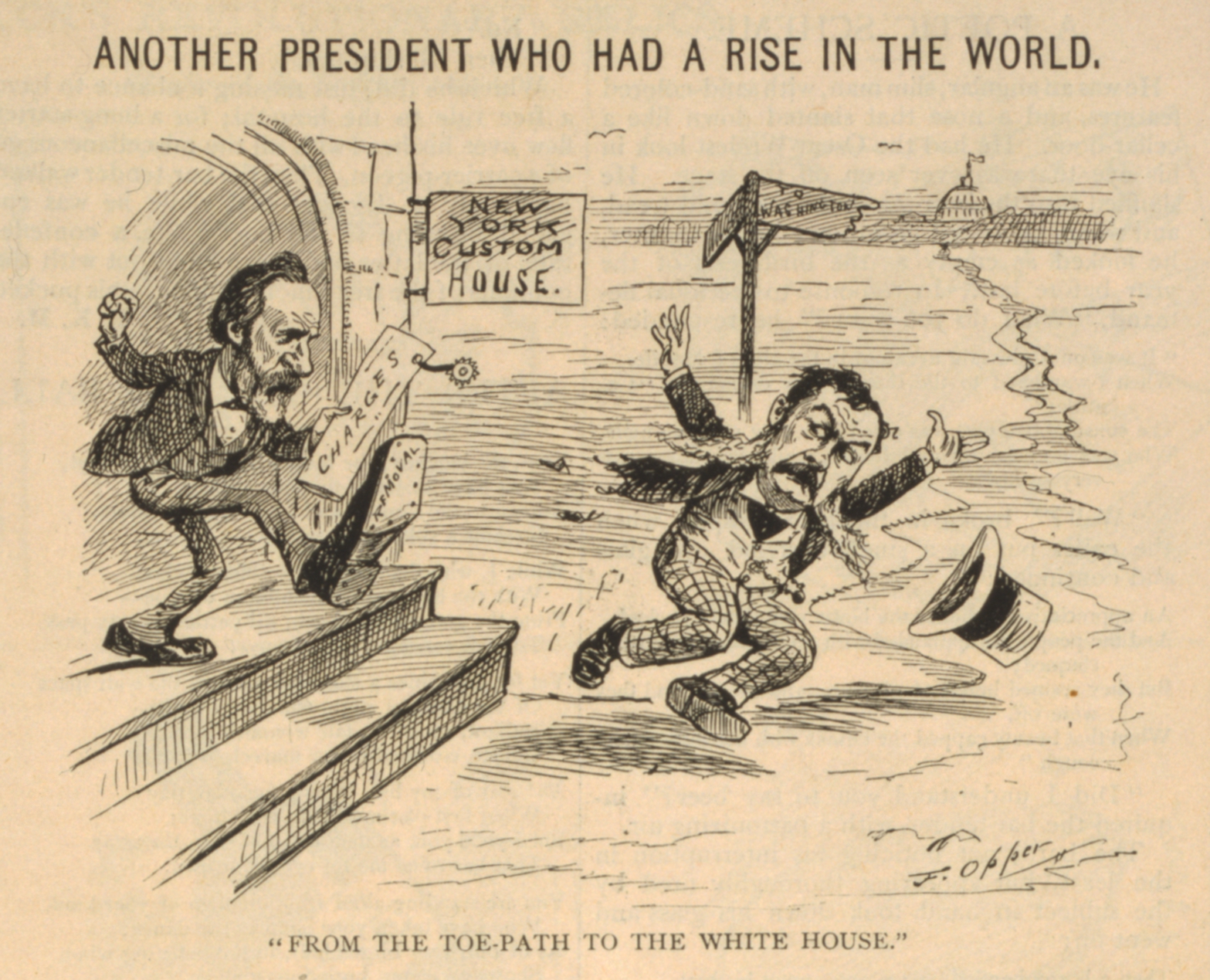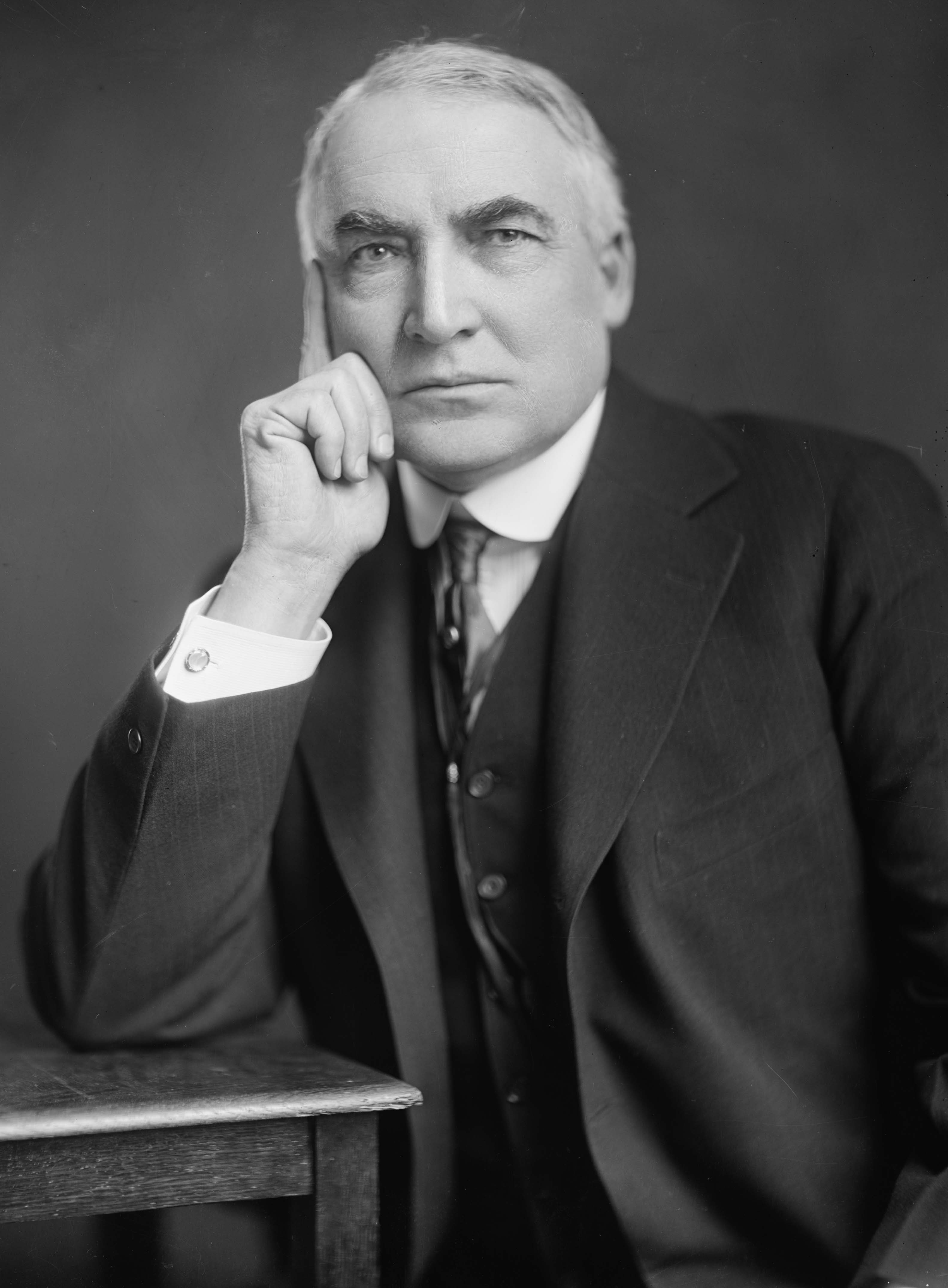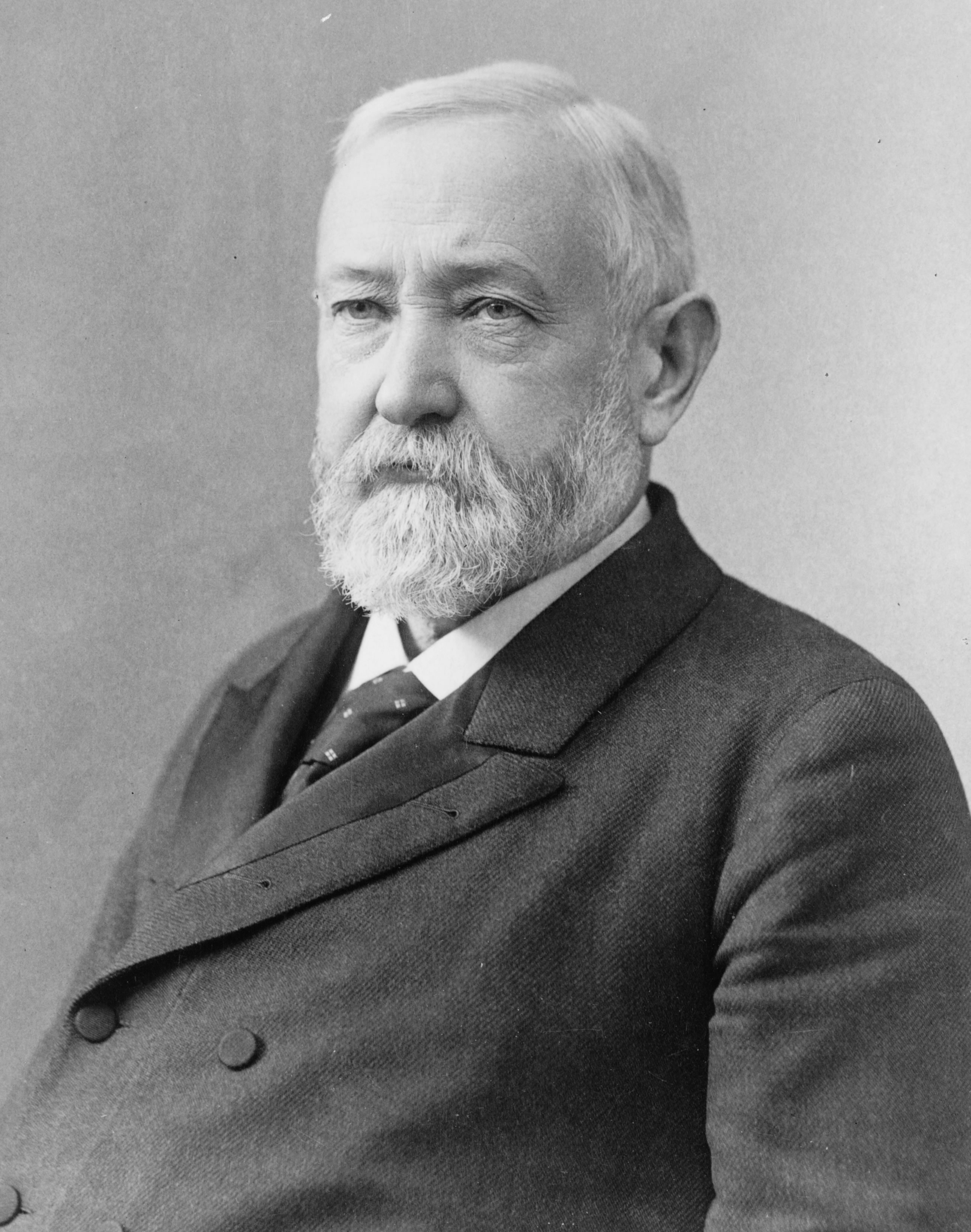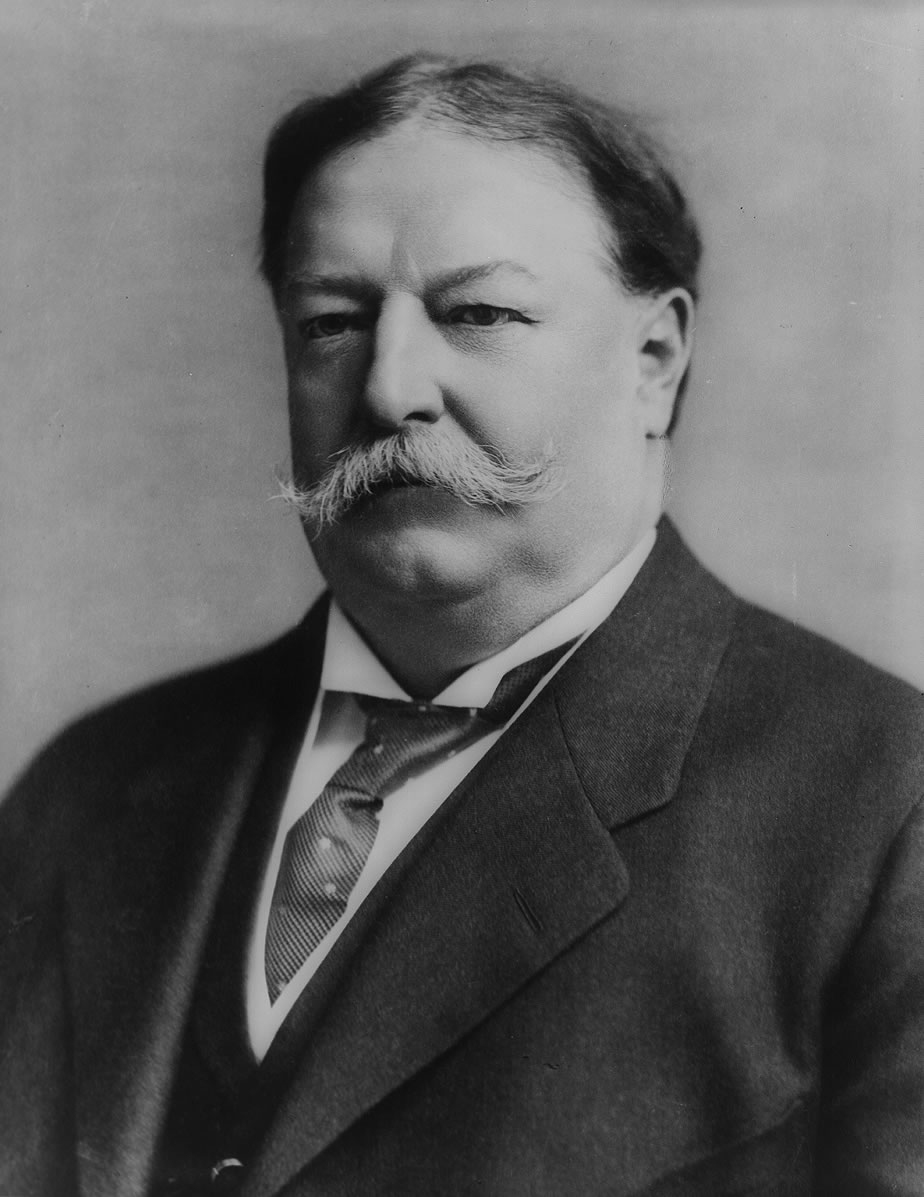| Ohio: At least our state flag is cool... |
Surprisingly Ohio shares the title "Mother of Presidents" with Virginia. Both states have, as of writing, contributed seven men to the office of President of the United States, and we share William Henry Harrison for a total score of eight. Unfortunately while Virginia gave us presidents such as George Washington, Thomas Jefferson and James Monroe, Ohio has men like James A. Garfield, William Howard Taft and Warren G. Harding. Fully half of the presidents from Ohio died in office, and of those whose presidencies were not riddled with corruption the rest were mediocre at best. So I'll try to put a funny spin on things and be prepared for five presidents you probably never even heard of before today.
(All facts are taken from a combination of Almighty Wikipedia and the Scholastic Encyclopedia of the Presidents and Their Times by David Rubel. Images are from Wikipedia too.)
William Henry Harrison
Honestly there isn't much to say about Old Tippecanoe as president. Although originally born in Virginia, Harrison was living in Ohio when he ran for office in 1840 so both Virginia and Ohio claim him as a son, although I suspect we only do it so the other one can't claim "Mother of Presidents" undisputed. Honestly, Harrison hardly even counts as a president. He gave the longest inaugural speech in U.S. history, talking two hours in extremely cold weather, without either a hat or coat simply to prove how humble he was. Seriously, that was Harrison's platform for becoming president, "I am a man of the people, just like you. Also I killed Indians." So to prove a point he stood outside in the cold, for two hours, without a hat and coat talking at people. Now for those of you that have heard this story, you know he caught pneumonia and died. Well, apparently standing for two hours in the cold wasn't what gave him pneumonia because he didn't catch it until three weeks later. Unsurprisingly, 1840's medicine being what it was, Harrison died shortly after catching pneumonia and served a grand total of a month as president. Go team.
 |
| Remember kids, even if you only had one month as president, somewhere, someone will erect a statue of you. |
Ulysses S. Grant
Many people view Grant as a failure of a president despite being a great general during the Civil War, and to an extent this is largely true. Many people cite Grant's life-long battle with alcoholism and the fact he got a speeding ticket while driving a horse as president. Honestly those are just drops in the bucket compared to the larger issues with Grant's presidency. To be fair, during his two terms Grant passed a series of Civil Rights legislations in an attempt to secure the rights of not only African-Americans but also American Indians. Unfortunately most of those policies were mismanaged or poorly guided and ended poorly. What really marks Grant's presidency as a failure is the number of scandals enacted by his subordinates. Grant had a tendency to put friends, relatives, and old subordinates from the Civil War in positions of authority during his presidency and refused to accept any criticism of his subordinates from outsiders. Some of Grant's subordinates, like Grant himself, were simply not cut out for political life and lacked the necessary skills. Unfortunately a significant number of his subordinates were cut out for the political life, having no consciences and a consuming desire for money, and abused their positions of power for financial gain. In 1875-76 the Attorney General, Secretary of the Interior, Secretary of War, Secretary of the Navy and Grant's own personal secretary were all involved in separate scandals. That's four positions in the presidential cabinet, plus the president's own aide, being involved in financial scandals in the space of two years. Not to mention even the post office and tax collectors were corrupt as well. Grant may have not been involved in these scandals, but the fact that many of the perpetrators were his appointees, and the fact that he seemed to have no idea what was going on in his own administration made Grant look like a bumbling incompetent.
 |
| No, I'm sure it'll all turn out fine... |
Rutherford B. Hayes
Not to worry, though because surely the great Rutherford B. Hayes will be able to salvage Ohio's pride.
Oh...wait...no.
Let me explain. The 1876 presidential election was highly contested between the Republican Candidate, Hayes, and the Democratic Candidate Samuel J. Tilden. Both men had a reputation for being incorruptible and promised to reform the civil service system that had been so abused by Grant's subordinates. Unfortunately the election of 1876 was terribly corrupt and twenty electoral votes were left for either candidate, enough to make one president. A bi-partisan commission consisting of Representatives, Senators and Justices of the Supreme Court met to allocate the last twenty votes, however the eight Republicans of the committee suprisingly decided to give the votes to Hayes, much to the anger of the seven Democrats. As a compromise the Republicans promised to withdraw federal troops from the South and end Reconstruction. Although Hayes himself was an honest man who managed to reform some aspects of the civil service, many people viewed his election as fraudulent and gave him an overall bad public image. To his credit Hayes managed to reform the civil service, helped solve the economic crisis gripping the nation, and vetoed a bill that would restrict Chinese Immigration (Although that bill would be passed by Chester A. Arthur after Hayes's presidency. Oddly enough Arthur was an official Hayes fired for corruption.)
 |
| "I kick you and your mutton chops with my giant right foot of justice!" |
James A. Garfield
Not to worry though, because James A. Garfield is next! He was elected fair and square to the presidency, unlike Hayes so there isn't as much of a stigmata surrounding his presidency. But wait, wasn't he involved in a significant railroad scandal in the 1860's? Will his presidency be just as corrupt as Grant's, if not more so? No! Garfield is a dedicated reformer, firing corrupt officials and pursuing any mention of corruption within his administration. Also he's supporting universal education to increase the literacy rates of African-Americans. Especially in the South where he's afraid their political freedoms are being hampered by their lack of education. Wow! It looks like Ohio might have produced a good president for once! I sure do hope he doesn't get shot by a crazy person or anything....
 |
| GODDAMNIT! |
Benjamin Harrison
Benjamin Harrison is another one of those mediocre presidents. On the one hand he did some good things and wasn't corrupt. On the other hand, he annexed Hawaii. You may not think that's a bad thing, but I'll get to it. In Harrison's favor he managed to pass the Sherman Anti-Trust Act, a law which would prohibit monopolies such as Standard Oil. Granted corporate lawyers found a number of loopholes through the Sherman Anti-Trust Act and following presidents didn't really act on it, but it laid important groundwork for the trust-busting activities of Theodore Roosevelt and William Howard Taft. Harrison also created the Dependent and Disability Pensions Act which took federal surplus money and gave it to disabled Union veterans in the form of pensions, which was wildly popular, at least in the North.
Now...as for Hawaii. I'm sure I have at least one reader saying, "But Kalpar! Hawaii is a wonderful vacation spot filled with sun, surf and sand! Why would the United States ever annexing such islands be a terrible idea?" Well...let me put it like this. Hawaii was never annexed just to provide a nice vacation spot for American citizens. Hawaii was annexed for the benefit of the Dole Corporation.
| Who, these guys? Never heard of them! |
William McKinley
Within his own time period, William McKinley was insanely popular, although I am less inclined to take such a rose-tinted view of him. To be fair, McKinley and Taft are so overshadowed by Theodore Roosevelt that many of their accomplishments seem small potatoes by comparison. Overall things went fairly well during McKinley's presidency. The country recovered from the economic troubles that had plagued the nation since the Civil War, and the United States accepted the Gold Standard. How much credit McKinley can actually take for bringing the United States into an era of economic growth is disputed, considering economics seems to operate on fairy magic even at the best of times, but he took credit for it anyway. However, McKinley had a very laissez-faire policy when it came to business and many trusts continued to grow during his presidency, in spite of the Sherman Anti-Trust Act.
What is most memorable about McKinley's presidency is the Spanish-American War, which surprisingly the Americans won. The war effort was plagued by supply shortages and disorganization so it was ultimately more a testament to the disorganization of the Spanish that the Americans won at all. However the war ended quickly and the Americans got the Philippines,Guam, Puerto Rico and went ahead and annexed Hawaii for the hell of it. And delicious delicious pineapples. Overall the American public was satisfied with the results of the war and ignored the growing pacification movement in the Philippines. You see, the Filipinos were initially joyful that the Americans had come to liberate them from the Spanish. However, when they discovered that the Americans weren't going to leave anytime soon they were less than thrilled. As a result a brutal and violent pacification campaign was undertaken by the US Army. However, since it was the US Army doing the oppressing everyone back home in 1900's America thought that was a-okay. *sigh*
Anyway, with the economic and military successes of his first term, McKinley was reelected and served an even greater second term until he was forced to step down due to a permanent case of dead.
 |
| Oh god, my pancreas! |
William Howard Taft
You're probably familiar with Taft since he was our heaviest president , clocking in at over 300 pounds, and got stuck in the White House bathtub. If any president suffers from a public image problem it would be Taft, but he was actually a pretty okay president. Certainly not a great president, but I would consider him to be the one president from Ohio who breaks above mediocre into good.
As president Taft continued Theodore Roosevelt's trust-busting policies and managed in one term to bust more trusts than Theodore Roosevelt had in two. Taft also helped pass a corporate income tax which increased federal revenue and removed the dependence on tariffs for income. As a result Taft increased trade agreements with Central and South America as well as Canada and China. Taft also ordered the first presidential cars and, being a native Cincinnatian, began the tradition of throwing the first pitch at the first baseball game of the year. (Go Reds!)
What hurt Taft the most, though was his public image, especially compared to Theodore Roosevelt. Taft simply did not have the same energy and force of personality as Roosevelt. TR tried to help Taft by going on a safari to Africa, but the press just followed TR and recounted his many adventures of killing animals. Despite his good policies, Taft simply could not compete with the image and personality of Roosevelt. I mean honestly, who would you rather have for president? This guy?
 |
| ....I really can't throw for crap, can I? |
Or this guy?
 |
| This is why no one can find Bigfoot anymore. He hunted them to extinction |
Taft really didn't stand a chance image-wise, but he was at least competent and honest, unlike the last Ohio President...
Warren G. Harding
 |
Nah, I'm messing with you, they were corrupt as hell. Although only one scandal was publicly discovered during Harding's term, many of the members of Harding's "Ohio Gang" abused their positions of responsibility for individual gain. The Secretary of the Interior was caught taking bribes to sell of reserves of oil on government-owned land. The Attorney General took bribes from bootleggers and the Prohibition bureau was utterly corrupt. Most famous at the time was the director of Veteran's Affairs who over-charged the government for hospitals to help wounded veterans of World War I and kept the profits for himself. The American people were rather disappointed with Harding and weren't exactly eager to reelect him in 1924.
In an attempt to reconnect with the voters, Harding went on a railroad tour of the West in 1923. Unfortunately...or perhaps fortunately considering the corruption of Harding's administration, his health was not very good and the trip proved to be an incredible strain. Harding eventually fell ill and died in 1923. That's at least the official explanation and honestly the most likely explanation. I prefer the conspiracy theory because it's more interesting.
You see...Harding was a bit of a womanizer. I know his eyebrows might give you cause to doubt, but the man had two confirmed mistresses and one bastard child. Rumor has it that some of the underground tunnels connected to the White House were used by Harding to move his extramarital flings covertly. Enter Florence Harding, Warren G. Harding's wife.
 |
| Cheat on me again, Warren, and I will cut you. |
Because Harding had died under somewhat mysterious circumstances doctors wanted to perform an autopsy, this was the president after all, but Florence declined. Some suspected that Florence got tired of Harding's infidelity and poisoned him, refusing an autopsy to cover her tracks. It was never proven of course and it seems unlikely, but you never know....
So that's the eight presidents hailing from the mediocre state of Ohio. Thanks for bearing with me and hopefully you learned something, even if it was Ohio has terrible luck when it comes to presidents.
- Kalpar








hahaha! I think you should teach history class, it would be much more entertaining! thanks :) maybe you should do a Kaplar's Look at the Presidents kids history book
ReplyDeleteI would read that book :)
Delete